Staying informed can be a challenge with so much happening around the globe. That’s why we’ve compiled a list of the top 10 mind-blowing things that occurred this week, offering a balanced mix of significant events.
From devastating natural disasters to remarkable scientific discoveries and bizarre stories of hidden treasures, let’s dive into the highlights of the week’s topsy-turvy world.
1. Kabul Devastated by Gigantic Bomb
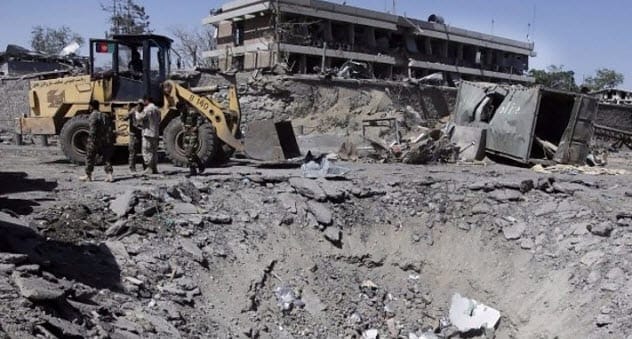
Kabul, once a relatively safe haven in Afghanistan, suffered a massive blow this week. A suicide bomber detonated a sewage truck filled with explosives in the heavily guarded embassy district. The blast killed over 90 people and injured 400, shaking the city to its core.
The explosion was so powerful that people throughout the city thought it was an earthquake. While no group has claimed responsibility, the attack highlights the escalating instability in the region and the end of Kabul’s safe haven status.
2. Death of Panama’s Ex-Dictator, Manuel Noriega
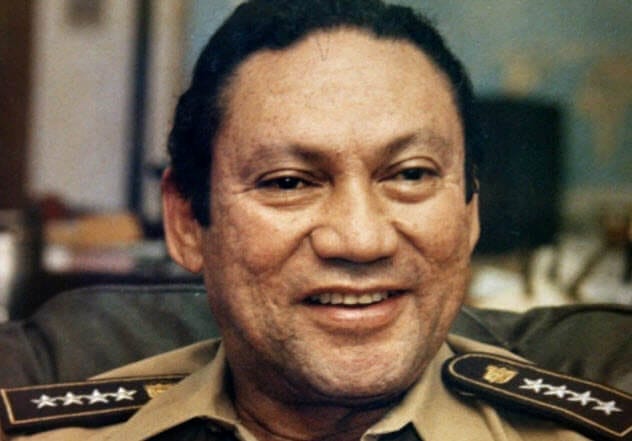
Manuel Noriega, the infamous Panamanian dictator, passed away at the age of 83 this week. Rising to power in the early 1980s, Noriega was deeply involved with the CIA while simultaneously flooding Miami with cocaine.
His regime was marked by political opponents being abducted, tortured, and murdered. In 1989, U.S. forces invaded Panama, leading to Noriega’s arrest. His death closes a controversial chapter in American history, highlighting the era of U.S. support for Latin American dictators.
3. Up Close and Personal with Jupiter
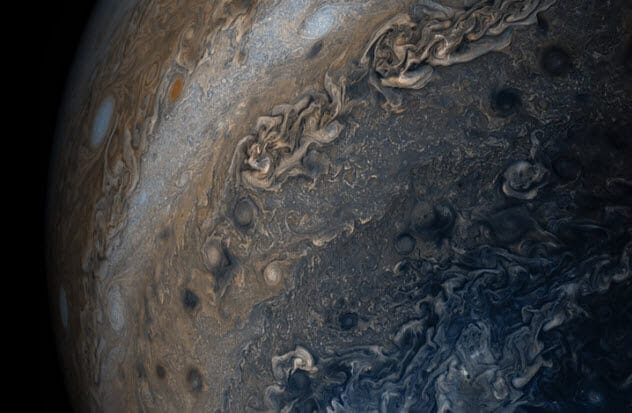
Space enthusiasts, rejoice! NASA released the first breathtaking images from their mission to Jupiter. These detailed pictures reveal ammonia clouds swirling with ice crystals and bright blue cyclones spanning over 970 kilometers.
The images offer the best look we’ve ever had at Jupiter, showcasing stunning patterns, whorls, and storms across the planet’s surface. Beyond the visual splendor, the mission is also gathering valuable data about Jupiter’s magnetic fields, fueling scientific discovery.
4. Sri Lanka Hit by Devastating Floods
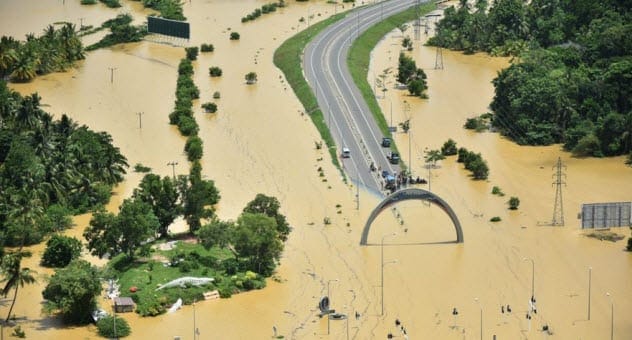
Sri Lanka experienced its worst flooding since 2003, with monsoon rains causing widespread devastation. Some communities were submerged under 4 meters (12 ft) of water, and landslides wiped out entire villages.
The floods left over 200 people dead and more than half a million homeless. The unsanitary conditions in temporary shelters raise concerns about a potential dengue outbreak, compounding the tragedy. Deforestation exacerbated the impact, highlighting the need for better environmental management.
5. Discovery of a Secret Stash of ‘Commie Gold’ in Russia

A group of explorers in Russia stumbled upon a hidden stash of one billion Soviet rubles in an old mine. While this “Commie treasure” is technically worth $18 million, there’s a catch: the Soviet notes are no longer legal tender.
Despite its lack of monetary value, the find is historically significant. The banknotes, issued between 1961 and 1991, offer insights into post-Communist Russia’s attempts to bury its past, sparking curiosity about other potential hidden sites.
6. Shocking Knife Attack in Portland
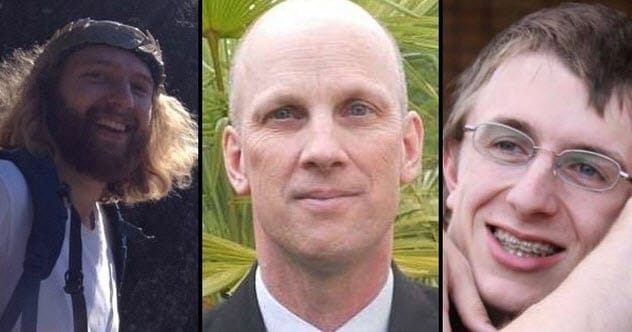
A horrific knife attack in Portland left the community reeling after a man yelling racist slurs on a train was confronted by three brave men. Taliesin Myrddin Namkai-Meche, Micah Fletcher, and Ricky John Best intervened, but were stabbed in the process.
Namkai-Meche and Best tragically died from their injuries, while Fletcher narrowly survived. The attacker, who identified himself as a “patriot,” faces the death penalty. This act of violence underscores the importance of standing up against hate, even at great personal risk.
7. Mississippi Suffers Deadliest Mass Shooting

Mississippi experienced its deadliest mass shooting this week when a dispute over child custody escalated into a massacre. A father killed eight people across three different homes in a rural town.
The shooting, which unfolded over at least seven hours, surpassed the 2003 Lockheed Martin plant massacre, marking a grim milestone for the state. The shooter, who claimed he intended to commit suicide by cop, now faces the death penalty.
8. Bangladesh Government Stands Up to Fundamentalism
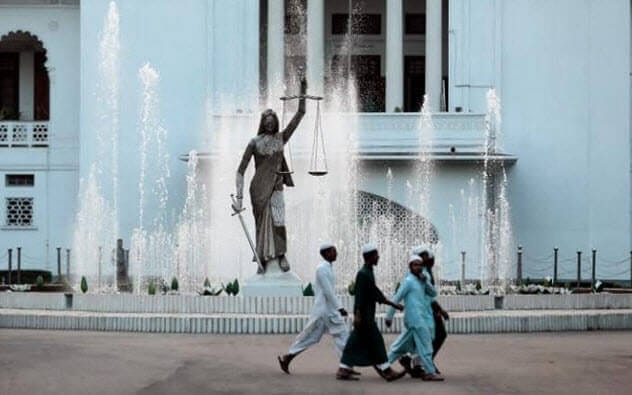
Bangladesh, a secular state, has been grappling with rising Islamist fundamentalism. After hardliners protested, the government removed a statue of Lady Justice from the Supreme Court, claiming it insulted Islam.
However, in a surprising turn, the government reinstated the statue (inside the building), signaling a stand against extremist demands. This move offers hope that Bangladesh can halt its slide toward religious mob rule and uphold enlightenment values.
9. Jared Kushner Entangled in FBI’s Russia Probe

Jared Kushner, President Trump’s son-in-law and senior advisor, has become a focal point in the FBI’s Russia probe. Reports surfaced that Kushner met with the head of Russia’s state-owned Vnesheconombank in December to discuss establishing a private “back channel” for communications.
Such actions could potentially violate U.S. law, particularly regarding conducting diplomacy as a private citizen and violating sanctions against Russia. These allegations add to the ongoing scrutiny surrounding the Trump administration’s ties to Russia.
10. U.S. Withdraws from Paris Climate Agreement
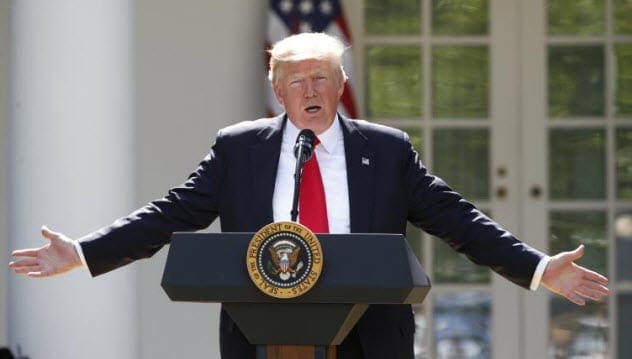
President Trump announced the U.S. withdrawal from the 2016 Paris Climate Agreement, a landmark accord involving 195 countries. Critics argue that the agreement strangles growth in U.S. oil and coal industries.
The decision has sparked widespread condemnation, but the EU, China, and Russia have pledged to remain committed to the agreement, potentially isolating the U.S. on the global stage. The future of the Paris Agreement and its impact on climate change efforts remain uncertain.
+ White House Leaking and Surveillance Scandal

The Department of Justice issued FISA warrants to tap the phones of journalists to uncover White House staff leaking classified information. This follows subpoenas served to the NSA, FBI, CIA, and former Obama officials, investigating potential illegal spying on U.S. nationals.
The aim is to investigate whether the Obama administration was illegally using foreign-intelligence power to spy on US nationals (including Trump campaign staff). Listening in on journalists is highly unusual, but there is a precedent – Obama’s Justice Department obtained phone records of numerous AP journalists in 2013.
This week has been a whirlwind of significant events, from tragic disasters and acts of violence to political shifts and scientific breakthroughs. Staying informed helps us understand the complex world we live in and encourages us to engage with the challenges and opportunities we face.
What are your thoughts on these events? Leave your comments below!










